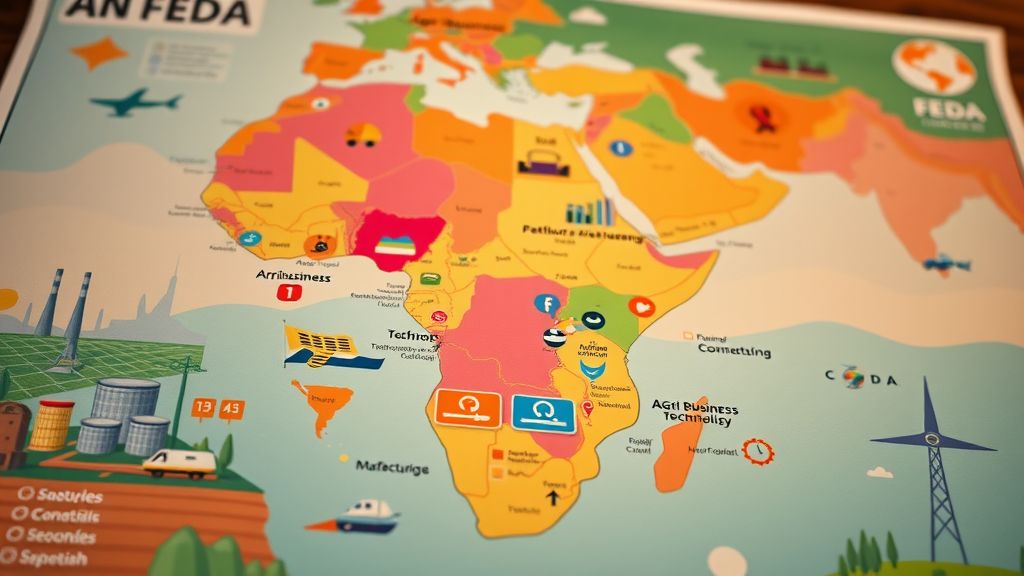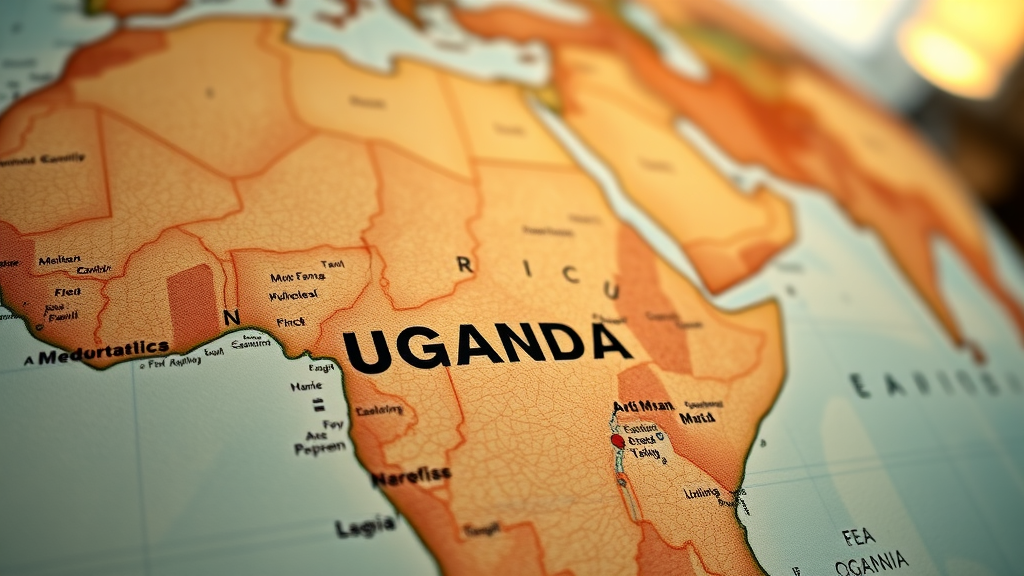In a rapidly changing global landscape, the Fund for Export Development in Africa (FEDA) emerges as a vital player in shaping the economic future of African nations. This article delves into the critical role of FEDA by examining its objectives, the impact of Uganda's recent accession, and its significance for intra-African trade and industrialization. Why is FEDA crucial for Africa's economic future? Let's explore this vital question.

Opening Inquiry: Why is FEDA Crucial for Africa's Economic Future?
The quest for economic self-sufficiency and growth in Africa has never been more pressing. With many nations emerging from economic challenges exacerbated by global disruptions, the need for innovative financial frameworks like FEDA becomes crucial. This Fund targets economic transformation through effective capital mobilization, aiming to provide much-needed investment across various sectors. By addressing funding gaps, FEDA seeks to empower African economies to rely on trade rather than aid, promoting a sustainable and self-reliant economic future.
Overview of FEDA and Its Mission
What is FEDA?

The Fund for Export Development in Africa (FEDA) is an impactful investment platform under Afreximbank, dedicated to enhancing intra-African trade and export development. As an initiative dedicated to providing equity, quasi-equity, and debt capital, FEDA aims to bridge the significant funding gaps that many African nations face—especially in sectors critical to economic growth. This commitment is evident in their multi-sector strategy that targets various industries ranging from agribusiness to technology.
FEDA's Role in Africa's Economic Transformation

FEDA's mission encapsulates a vision where African economies can achieve independence through enhanced intra-African trade. By fostering investment in manufacturing and technology sectors, FEDA positions itself as a catalyst for economic transformation. The fund actively seeks to dismantle barriers to trade and create a more integrated market, leading to sustainable economic development across the continent. For insights into how strategic acquisitions can enhance logistics and trade routes, consider exploring the Hanseatic Acquisition of CNMP.
The Significance of Uganda's Accession to FEDA
Marlene Ngoyi's Perspective on Uganda's Membership

Marlene Ngoyi, CEO of FEDA, articulated the importance of Uganda's membership in her statement:
“Uganda’s decision to join FEDA is a testament to the country’s confidence in FEDA’s mission and to its commitment to accelerating Africa’s economic transformation...”This remark highlights how Uganda's involvement symbolizes a broader commitment to fostering collaborative economic growth in the region.
Ambassador Philip Rukikaire's Insights on Economic Development

The words of Ambassador Philip Rukikaire also resonate with significance:
“Today marks a significant milestone in Uganda’s economic development journey. By joining FEDA, we reaffirm our dedication to a prosperous Africa...”His insights shed light on the potential impact of this membership on Uganda’s efforts to streamline its economic strategies and boost local industry.
FEDA's Impact on Intra-African Trade and Industrialization
Investment Strategies and Sector Focus
FEDA implements a strategic approach to investment that prioritizes key sectors essential for Africa’s growth. By focusing on elements such as agribusiness, logistics, and technology, the Fund aims to facilitate intra-African trade. This investment strategy not only enhances economic outputs but also emphasizes the importance of value-added export development in driving sustainable development across the continent. For a deeper understanding of how technology can transform industries, you might find the article on Health Tech Success in African Pharmacies insightful.
Recent Financing Approvals and Future Prospects

Recent financing approvals illustrate FEDA's growing influence in various sectors, showcasing a commitment to impactful investment. Current trends indicate a focus on financing local manufacturing initiatives and tech startups that promise to significantly enhance Africa's ability to compete globally. The future looks promising with ongoing support for initiatives that advance the continent’s economic landscape.
Challenges and Opportunities for FEDA in Africa
Addressing the Funding Gap in African Trade

The funding gap in African trade remains a challenge that FEDA seeks to address directly. By mobilizing capital efficiently, FEDA is positioned to provide solutions that bridge these gaps and enhance the flow of trade across the continent. Continuous investment and engagement from African nations will be crucial in realizing this vision.
Potential for Growth in Manufacturing and Export Sectors
The potential for growth in Africa's manufacturing and export sectors under FEDA’s guidance is immense. By nurturing local talent and industries, FEDA is helping nations build their economic capacities. This focus on growth can propel industries forward, ensuring that Africa not only meets its local demands but also positions itself favorably on the global market.
Key Takeaways from FEDA's Establishment Agreement
The Broader Implications for African Economies
The establishment of FEDA signifies a transformative approach to economic development in Africa. By prioritizing intra-African trade, industrialization, and value-added export development, FEDA sets a precedent for other investment bodies to follow. Its implications stretch far beyond finance, fostering a collaborative spirit that can unify African nations toward a common economic goal.
Conclusion: The Path Forward for FEDA and African Economies

As FEDA continues to enhance its role in Africa's economic landscape, the potential for providing crucial support to member states remains significant. The path forward for FEDA lies in fostering stronger partnerships and investing in the sectors that promise the most growth. Its mission aligns with the aspirations of African nations to achieve self-sustaining economies driven by trade.
What You'll Learn
- Understanding FEDA's mission and objectives.
- Insights into Uganda's role in FEDA.
- The impact of FEDA on intra-African trade.
FAQs about FEDA and Its Role in Africa
What is the main goal of FEDA?
The main goal of FEDA is to provide critical equity, quasi-equity, and debt capital to support intra-African trade and export development.
How does FEDA support African economies?
FEDA supports African economies by facilitating investment in key sectors, enhancing trade flows, and empowering local industries to thrive.
What sectors does FEDA focus on for investment?
FEDA focuses on various sectors, including agribusiness, manufacturing, technology, and trade-infrastructures.
Table: FEDA's Recent Financing Approvals
| Year | Amount Approved | Sector | Description |
|---|---|---|---|
| 2021 | $200 million | Agribusiness | Financing for agricultural exports |
| 2022 | $300 million | Manufacturing | Investment in local manufacturing |
| 2023 | $313 million | Technology | Support for tech startups in Africa |
Call to Action: Engage with FEDA's Mission
Join the movement towards economic self-sufficiency in Africa. Engage with FEDA and its partners to drive progress, investment, and growth across the continent. Explore how you can contribute to a prosperous African future.
 Add Row
Add Row  Add
Add 






 Add Row
Add Row  Add
Add 

Write A Comment